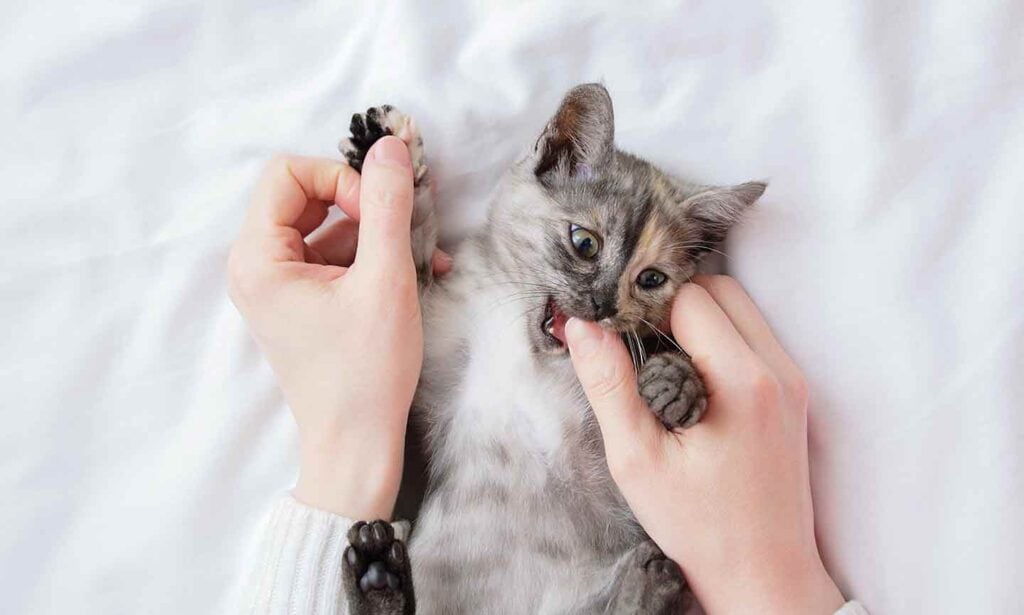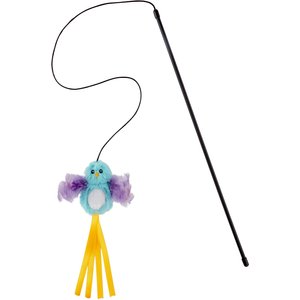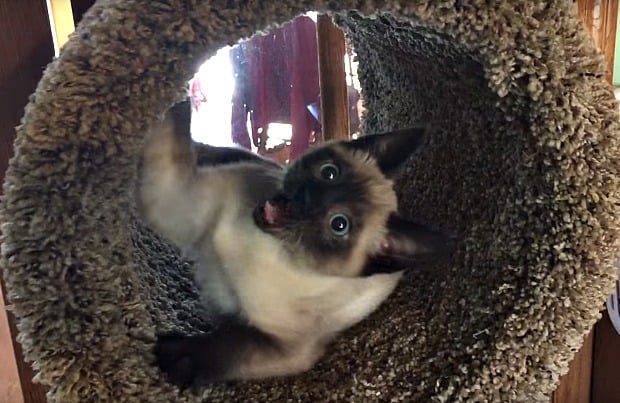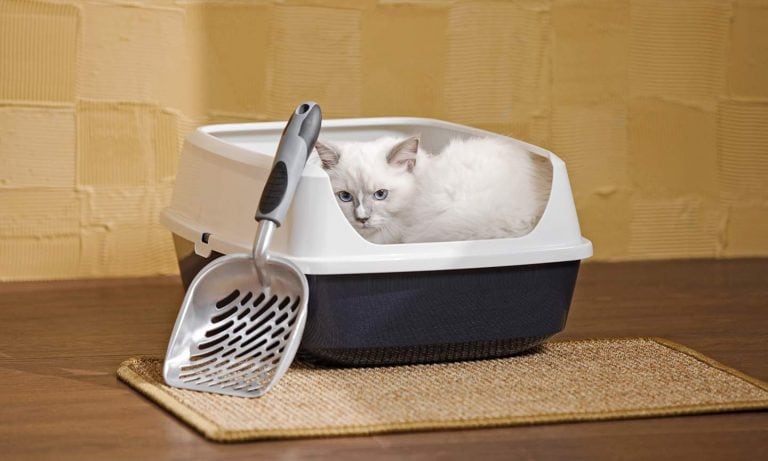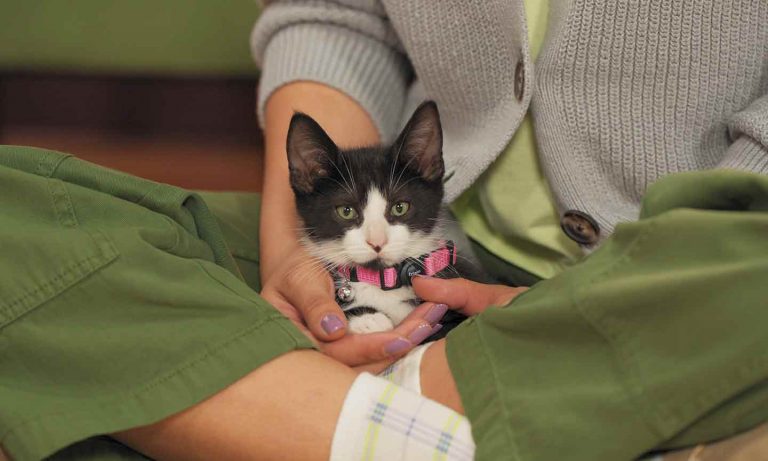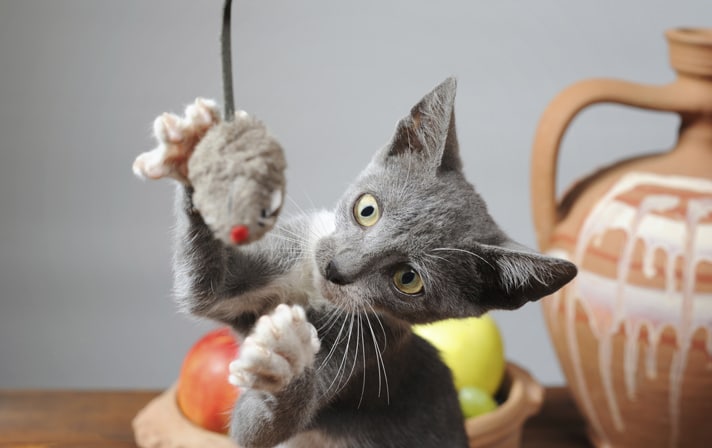Kittens are pint-sized, aww-inspiring wonders. Their tiny mews send hearts a patter, petite toe beans elicit mighty swoons and playful spirit makes even the most buttoned-up adults feel like a kid again. As sweet as kittens are, though, their teeth are razor sharp and they have a propensity for nips, nibbles and bites during this youthful stage of life.
Fear not—kitten biting is perfectly normal, and it’s often a habit they grow out of as they become adult cats. Still, it’s important to gently curb kitten biting through proper socialization, guided playtime and positive reinforcement. Keep reading to learn common reasons why kittens bite and what steps you can take to minimize this ouchy kitten behavior.
In This Guide
Why Is My Kitten Biting Me?
If you’ve noticed that your cat bites you during play sessions, when you’re holding them or simply while snuggling, you’re not alone. Kitten biting is a very common and natural cat behavior and seldom means that your cat is upset or aggressive.
One of the primary reasons why kittens bite (even if it’s a gentle nibble), is that this is their best way of exploring the world around them. If you think about it, other young animals and even human babies display a similar biting habit and often put things in their mouths. This is one way they can explore and interact with the world around them. Well, it’s the same for kittens!
Other reasons why kittens bite, nip or nibble include:
- Teething: Chewing on things, including our fingers, feels good on those growing teeth and painful gums. (More on this in a second.)
- Nursing instincts: Kittens will suckle on things, which can feel like a bite, if they’re not wholly weaned. They should nurse on their mother or a bottle until they are 4-6 weeks of age.
- Play aggression: This is an ingrained play behavior inspired by natural hunting instincts. It’s often playful, but mimics how they’d capture and interact with prey in the real world.
How To Stop Kitten Biting
As your new kitten matures into an adult cat, this biting behavior will typically begin to fade away. However, it’s still important to address this habit as much as possible to prevent it from lingering into adulthood. It also makes sense to curb biting behavior simply because, well, those sharp teeth kinda hurt!
Follow these simple steps to reduce kitten biting.
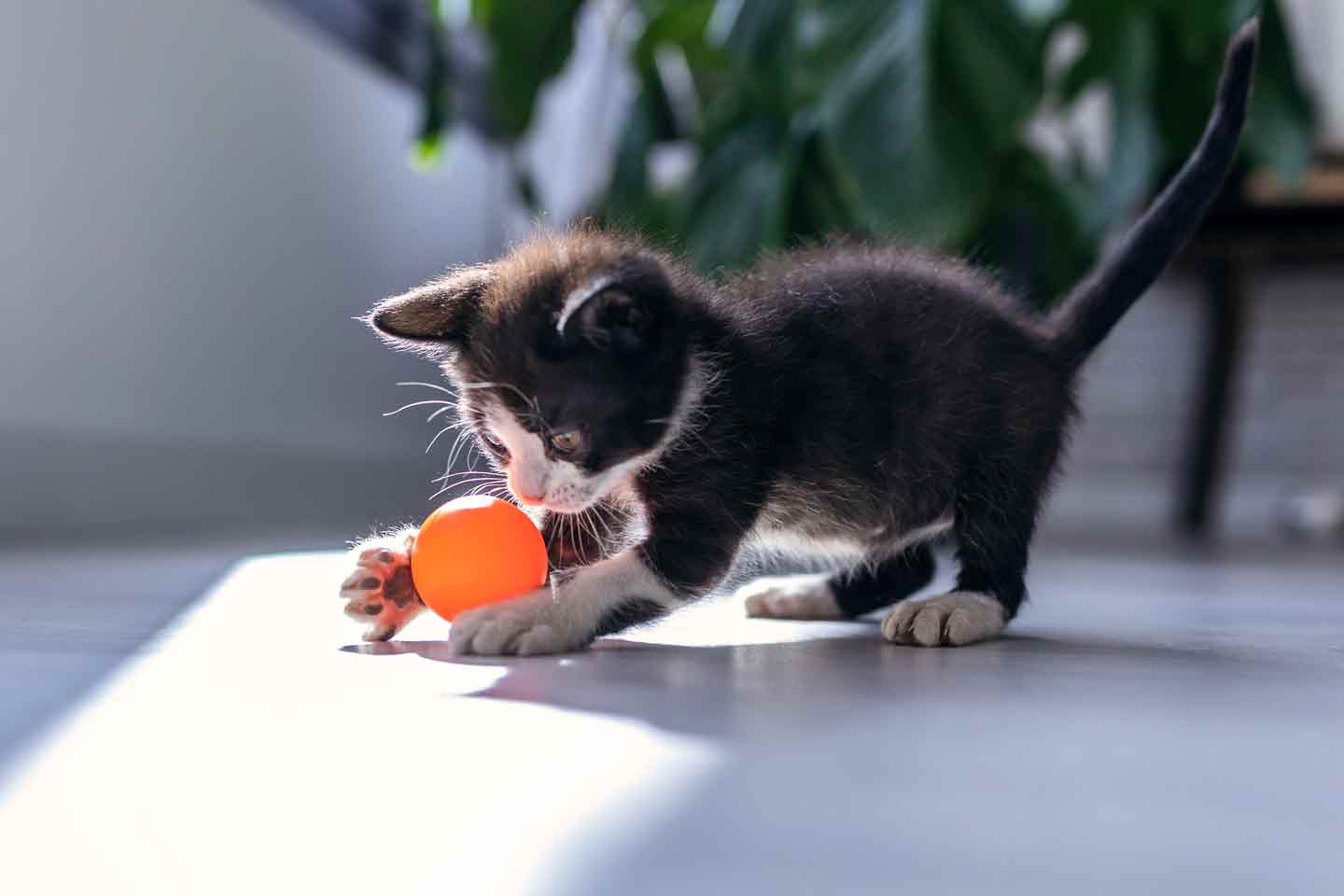
1 Provide Them With Lots of Toys
To curb playful biting in kittens, provide plenty of toys, such as wand toys, balls, scratching posts or interactive toys, to keep them engaged, advises Dr. Bradley Krohn, DVM, a veterinarian with The Vets based in Portland, Oregon. The Frisco Bird with Feathers Teaser Wand Cat Toy with Catnip is a good option because it attracts your cat with its irresistible scent and keeps your hands away from their mouth.
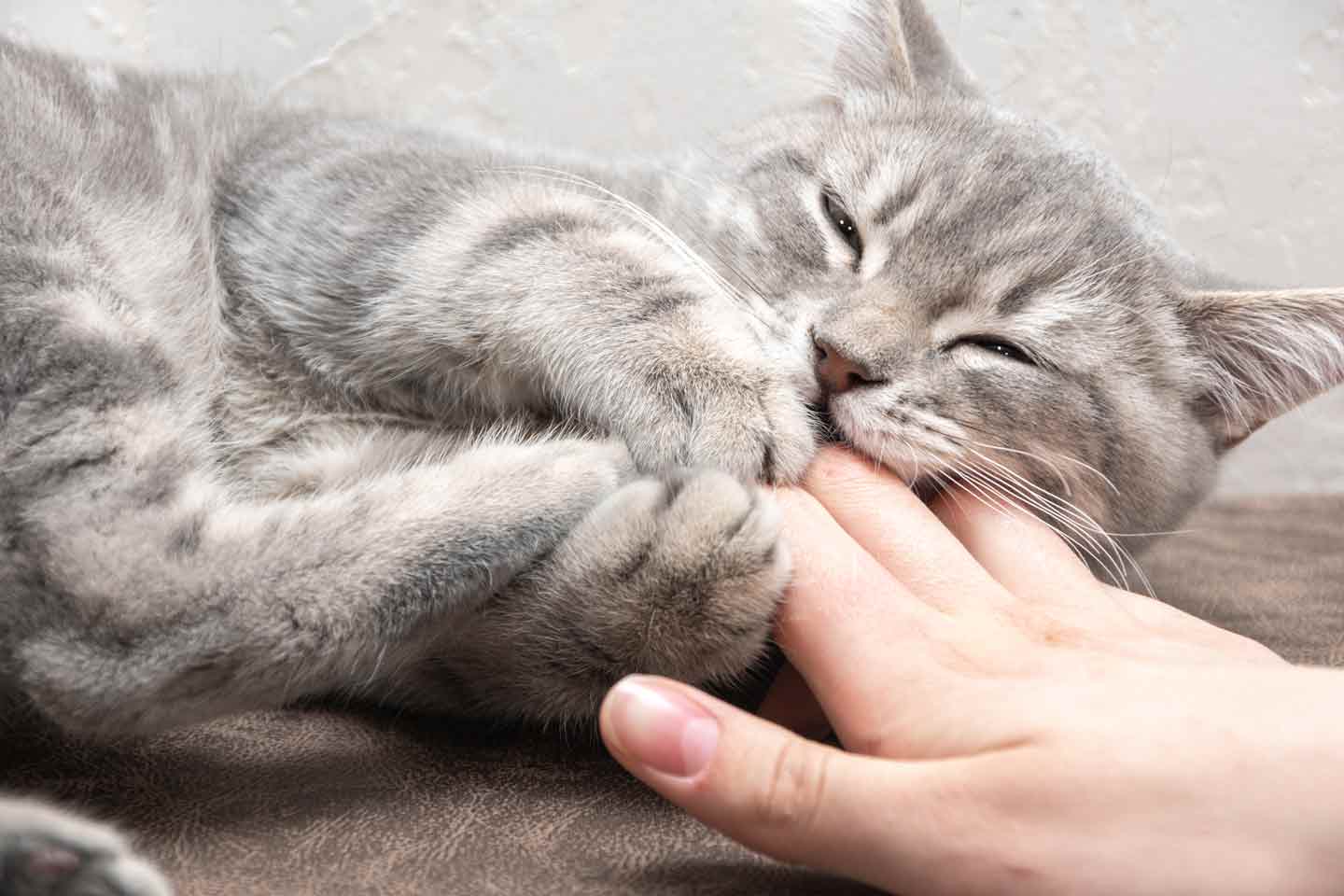
2 Avoid Using Your Hands as Toys
On that note, avoid using your hands as toys. “This can encourage kittens to view your fingers as playthings,” Dr. Krohn explains.
How To Play With Kittens Properly
It’s important to play with your kitten in a way that doesn’t encourage them to bite. This means avoiding rough play—which only encourages them to tap into their feisty side—and instead gently playing with a variety of toys. Think of playtime as an opportunity for you to bond and to encourage and reward good behavior.
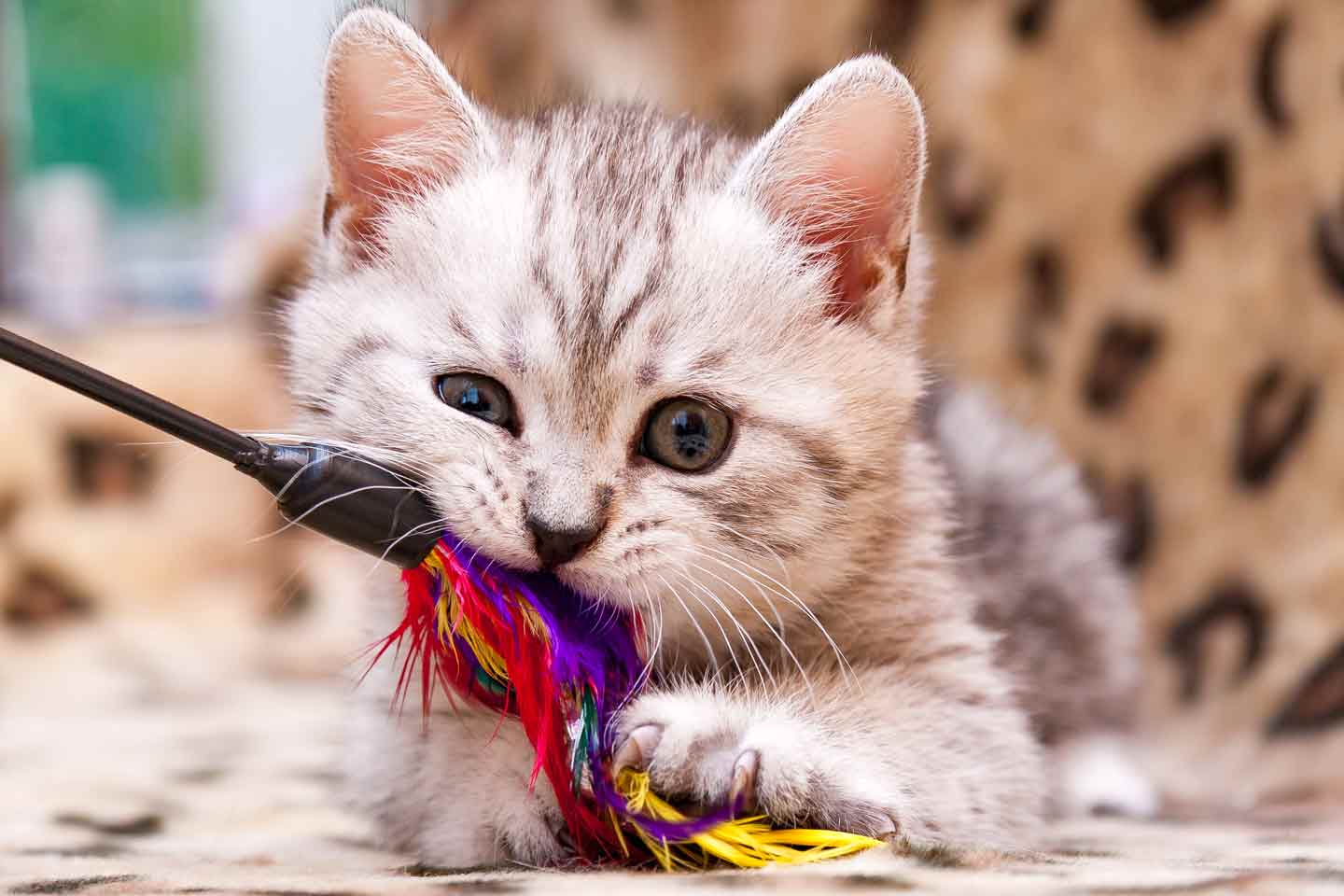
3 Use Positive Reinforcement
If your kitten bites you, don’t snap at them or punish their behavior. Rather, Dr. Krohn says, it’s best to redirect their attention to an appropriate toy. “Consistency and positive reinforcement can help shape their behavior,” he says. Also, scolding them is usually ineffective. Instead, it will likely just leave them feeling confused because they’re simply acting on natural instincts and are unaware that what they’re doing is wrong.

4 Encourage Socialization With Playmates
If your circumstances permit, it might be helpful to adopt kittens in pairs or allow your kitten to play with their littermates up until adoption. This gives them time to interact and socialize with other kittens—including pouncing, tackling, and biting—as much as they desire.

5Consult an Expert
If kitten biting remains a persistent issue, is causing harm or seems out of the ordinary, then this behavior could be a sign that something else is going on with your kitten. It’s possible they are dealing with a hidden injury or aren’t feeling well, or that they’re feeling anxious, scared or upset. In this case, speak with your veterinarian about the best next steps or consult an animal behaviorist for guidance on modifying their behavior, Dr. Krohn advises.
When Do Kittens Stop Biting?
There’s no definitive time when kittens stop biting. Generally speaking, though, kitten behavior—which includes chewing, nibbling, nipping, scratching and suckling—may begin to decrease once they’ve finished teething and start to seek affection and companionship.
“This usually stops around a year or so, when they start to outgrow their kitten playfulness and become more like adult cats,” says Dr. Krohn. “However, individual kittens can vary, and some may continue to exhibit playful biting tendencies even as adults.”
Consistent training, appropriate playtime and socialization during kittenhood can help reduce these behaviors early on and ensure they’re not prominent or problematic as adult cats.
What To Know About Kitten Teething
A common reason kittens bite is because they’re teething. Incoming teeth can cause discomfort, and kittens realize (just like human babies) that chewing on things can help alleviate some of that pain. Like humans, they tend to chew on pretty much anything they can sink their tiny teeth into—your arm, random objects and even cords.
During the latter part of this teething stage—which occurs between 10 weeks and six months—it’s important to give them appropriate toys they can safely chew on. The SunGrow Teething Chews Cat & Ferret Chase & Kicker Mouse Plush Toy features an assortment of catnip-filled toy mice, which helps satisfy both their need to chew and their hunting and pouncing instincts. Another option to consider is the Catstages Fresh Breath Mint Stick Cat Chew Toy, which gives them a biting toy while imparting a minty scent to improve kitty breath.
Along with providing your kitten with the right chew toys, it’s also imperative to eliminate any access to potential hazards, such as small objects they can choke on or electrical cords. Once your cat has all 30 of their adult teeth—which typically occurs between 10 weeks and six months of age—this chewing frenzy may cease.
As you can see, kitten biting is completely normal and even expected. During this phase of their life, provide them with an extra dose of patience, kindness and care. Outfitting the rooms of your house with a variety of enticing toys, sticking to hands-free toys and using a positive reinforcement approach will help ensure your kitten ditches the biting once they’ve grown up. For more helpful information on kitten rearing, check out our guide on things you should do when raising a kitten.
Expert input provided by Dr. Bradley Krohn, DVM, a veterinarian with The Vets based in Portland, Oregon.
More Cat Training Tips
Share:
